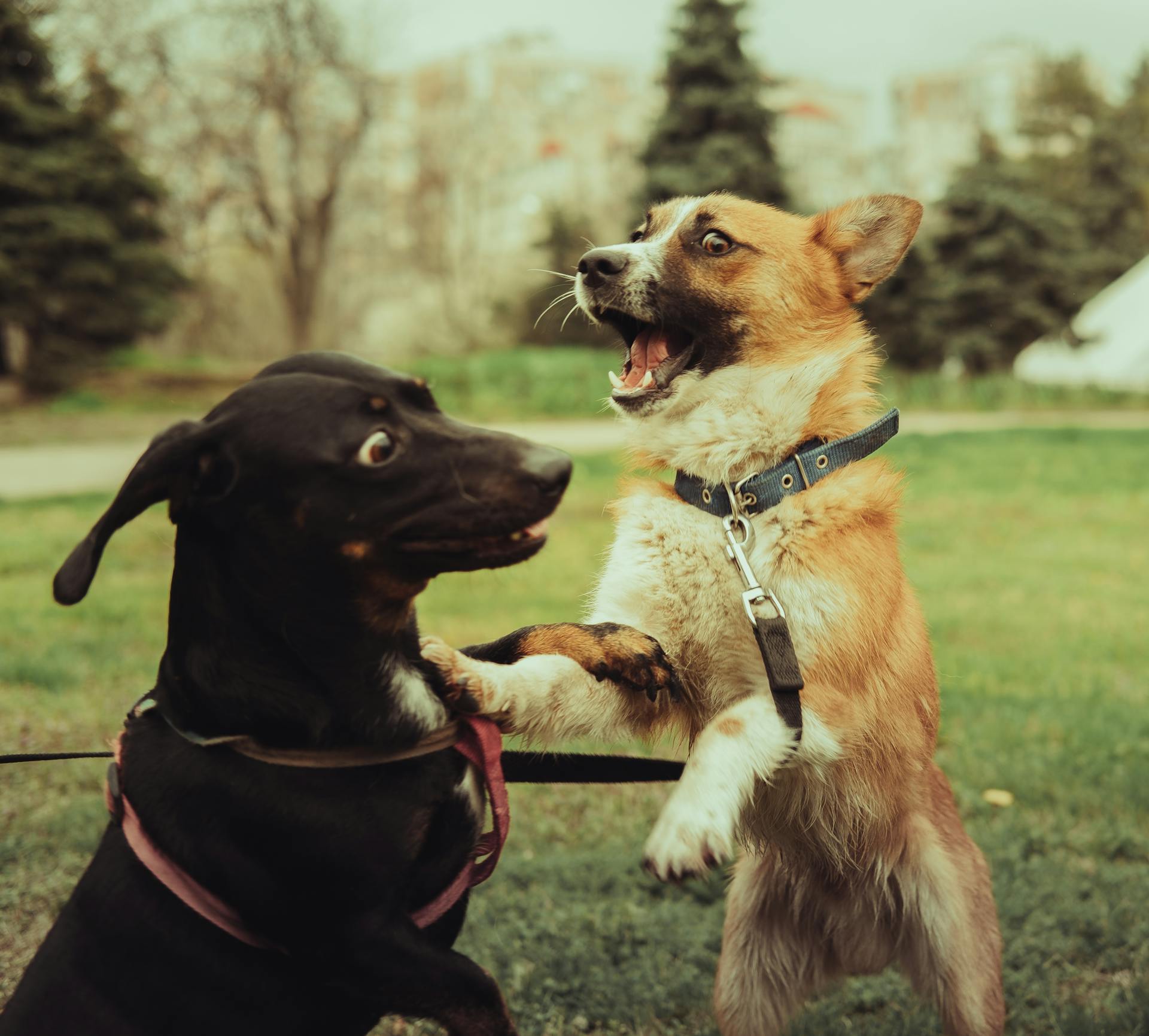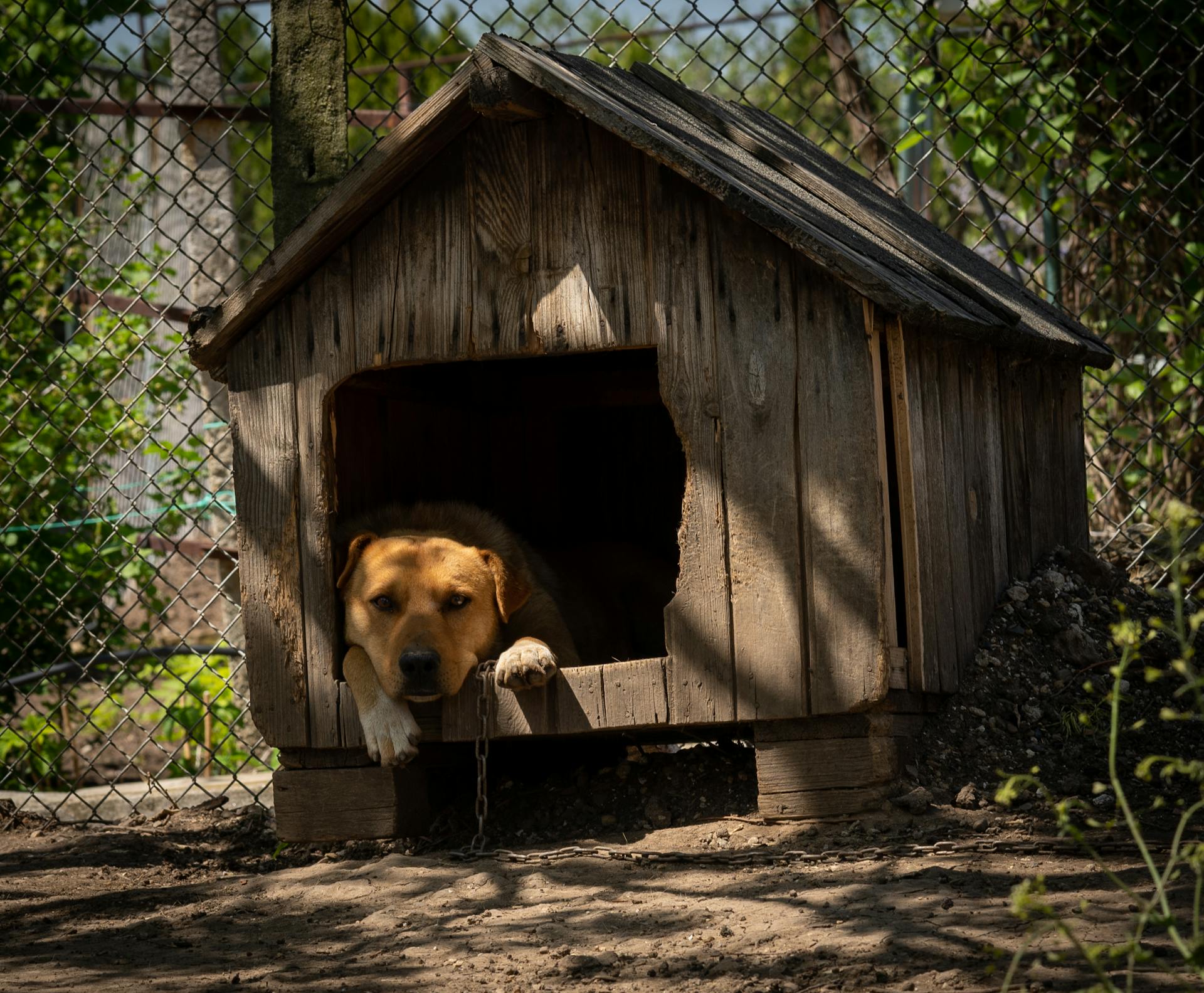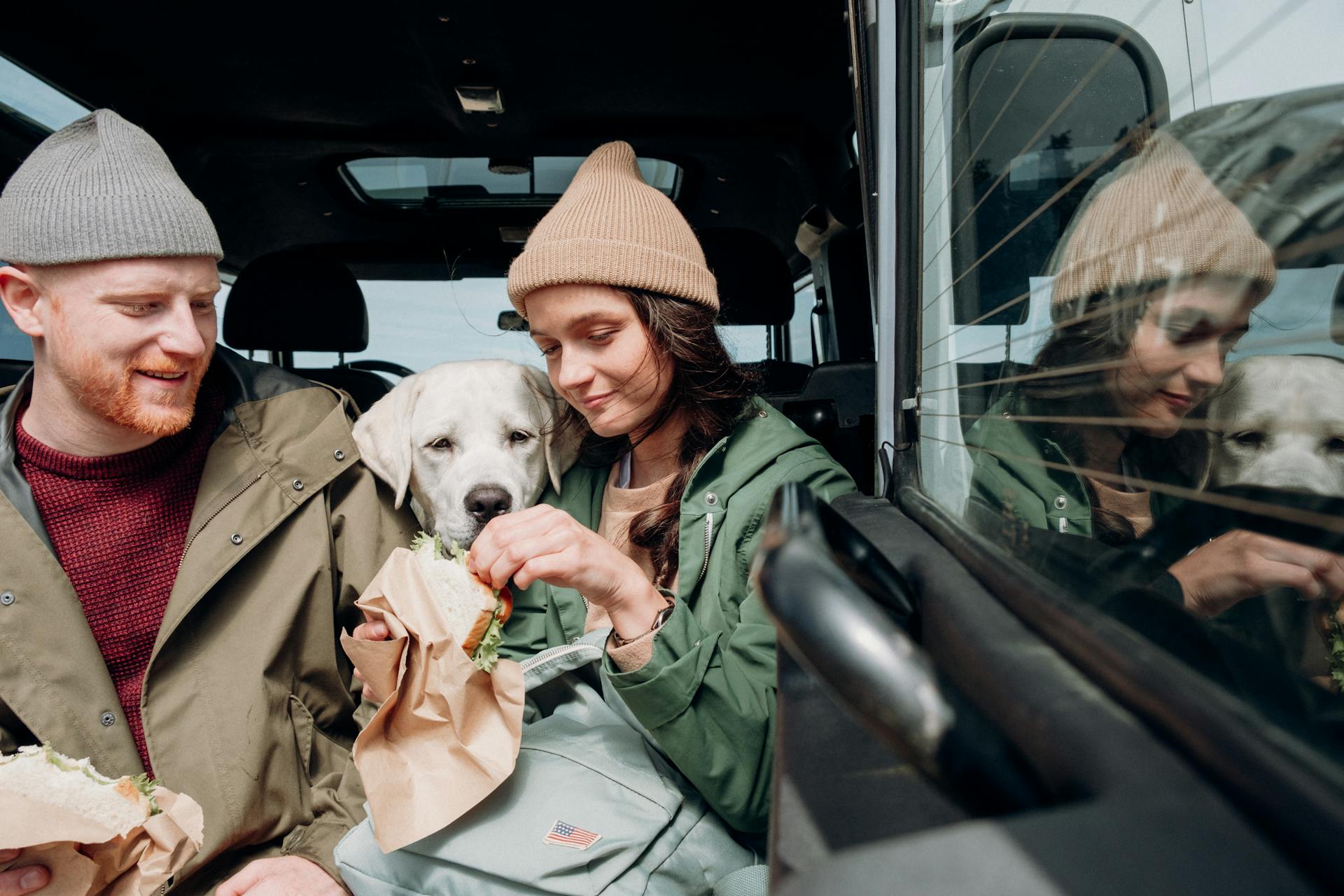
If your dog is not eating after boarding, it's likely due to stress and anxiety caused by the new environment. This is a common issue that can be addressed with patience and understanding.
Changes in a dog's routine, such as boarding, can cause them to feel anxious or stressed, leading to a loss of appetite. Dogs are creatures of habit and thrive on predictability.
Some dogs may experience gastrointestinal upset, such as diarrhea or vomiting, which can further exacerbate their lack of appetite. This is often a result of the stress they experience during boarding.
In some cases, a dog's lack of appetite after boarding may be a sign of a more serious underlying issue, such as a medical condition or a food allergy.
Behavioral and Emotional Issues
Abnormal behavior or changes in appetite can indicate mental trauma in dogs. If your dog seems depressed or scared, is having accidents, or is shaking after returning home, it's essential to book an appointment with the vet to eliminate a potential medical cause.
Changes in a dog's life, such as being re-homed or experiencing the loss of their owner, can cause anxiety and affect their hunger. Dr. Hohenhaus has witnessed a canine patient stop eating after being re-homed, highlighting the emotional impact on dogs.
To help your dog feel secure and loved, try the following:
- Bring out your dog's favorite treats and toys.
- Take him on walks to his favorite places.
- Play his best games with him, followed by a cuddle on the couch.
- Spend quality time with your dog to let him know you missed him too.
- Distract him by getting him to respond to easy, routine commands such as sit or stay.
- Offer him lots of exercise to help tire him out.
- Make sure your dog has a safe place in your home where he can go to relax and be in a quiet space.
If the symptoms of stress continue after a few days, it's best to see your vet for further assistance.
Social and Emotional Issues
Dogs can suffer from social and emotional issues just like humans do, and it can affect their appetite.
A change in a dog's life, such as being re-homed, can cause anxiety and affect their hunger.
Dr. Hohenhaus has witnessed a canine patient stop eating after being re-homed following the death of her owner.
Just like some people, dogs can either eat a lot or nothing when their life is turned upside down.
Some dogs may stop eating due to stress, while others may do so due to changes in their routine.

Here are some signs that your dog may be experiencing social or emotional issues:
- Changes in appetite
- Changes in behavior or abnormal behavior
- Depression or fear
If your dog is experiencing stress, try to help him feel secure, loved, and comfortable by bringing out his favorite treats and toys, taking him on walks, playing his best games with him, and spending quality time with him.
If your dog is having trouble adjusting to a change in routine, give him extra time to readapt, and try to ease him back into his normal routine.
Change Your Diet
Changing your dog's diet can be a simple yet effective solution to address behavioral and emotional issues. Consult with your vet to see if a diet change can help.
Some dogs can benefit from bland food like boiled fish or chicken with rice for a few days. This can help alleviate anxiety.
Having several types of dog food on hand that your dog likes can make it easier to make a change if needed. This way, you can quickly switch to a familiar food if your dog's new diet doesn't agree with them.
Releasing a new and improved version of dog food can sometimes be a good opportunity to rehaul your dog's diet completely. Opting for fresh, high-quality, and nutritious food can make a big difference.
Handling the Situation
Give your dog time to readapt to his daily habits at home, including eating. This can take a few days.
Changes in routine can be stressful for dogs, so it's essential to provide a familiar environment as soon as possible. This includes familiar smells, which are crucial for your dog.
If your dog isn't eating because he preferred the food at the kennel, try offering a variety of healthy treats to see if he'll eat those. Some dogs will hold out for something better.
Dogs thrive on routines, so try to maintain their regular feeding schedule as much as possible. This will help them feel more secure and comfortable at home.
Why Is My Dog Not Responding?
If your dog is not responding after boarding, it's likely due to stress and anxiety caused by the change in environment and separation from their owner.
Dogs are highly attuned to their owner's emotions and can pick up on subtle cues, making them more susceptible to anxiety and stress when left alone.
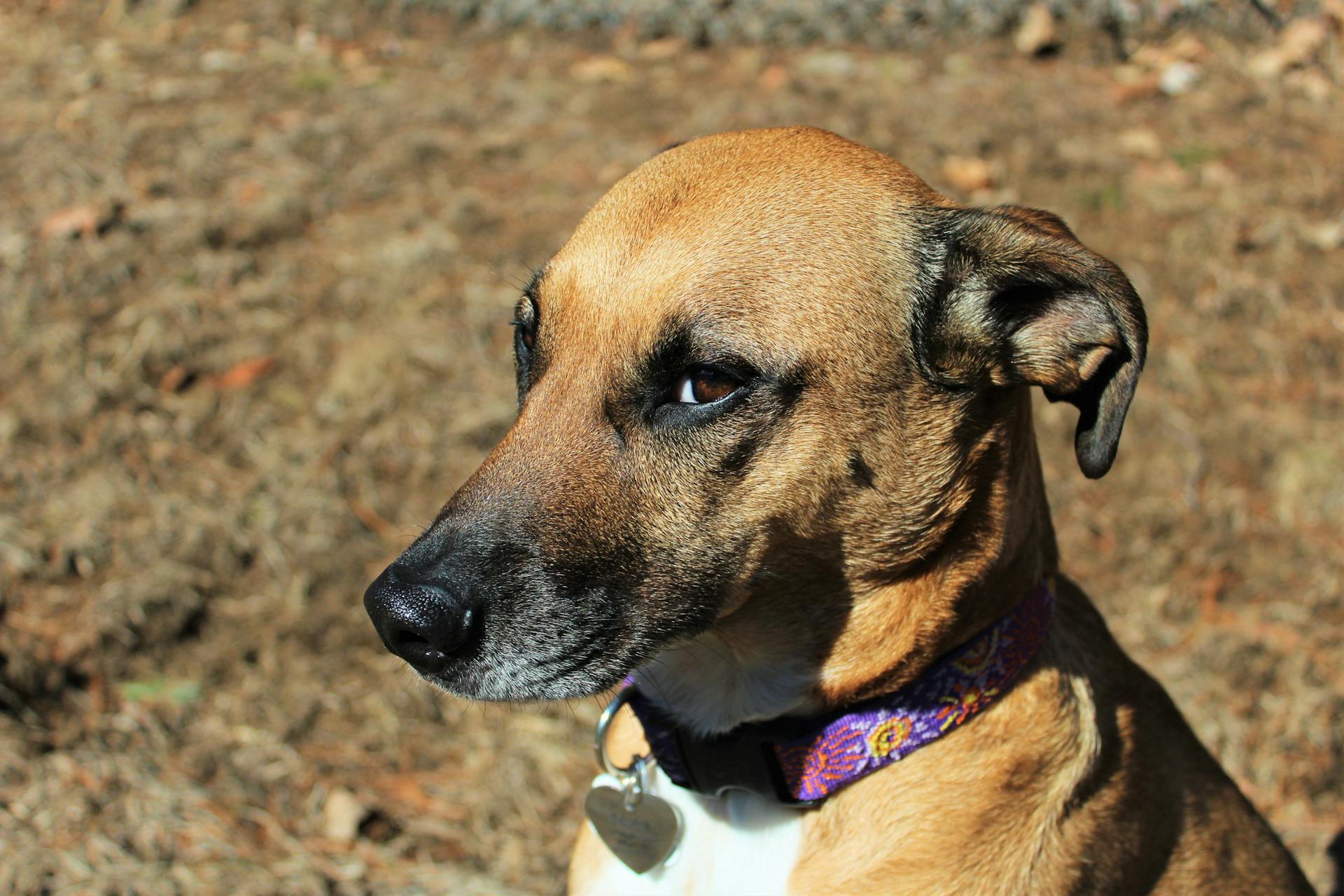
The stress of boarding can be overwhelming for some dogs, leading to a lack of appetite and lethargy.
In some cases, the stress of boarding can even cause gastrointestinal upset, leading to diarrhea or vomiting.
A lack of familiarity with the boarding environment can cause your dog to feel anxious and withdrawn, making it difficult for them to respond to their owner.
Dogs thrive on routine and predictability, and the disruption caused by boarding can make it challenging for them to adjust to new surroundings.
Some dogs may take longer than others to adjust to the boarding environment, which can lead to a delayed response from their owner.
The quality of care provided at the boarding facility can also impact your dog's response, with some facilities providing more attention and interaction than others.
Possible Reasons
Stress can be a major culprit when it comes to a dog not eating after boarding.
Dogs may struggle to readapt to their home routines, including their usual diet, after a stay at the kennel.
Stress is often the most common reason for dogs not eating after boarding.
Illness

Illness can be a common reason why your dog might not be eating after boarding. According to Dr. Ann Hohenhaus, dogs can pick up viruses or other illnesses at the boarding kennel, just like humans do.
Your dog might not feel like eating if they have a fever or are feeling unwell. In fact, Dr. Hohenhaus suggests that often dogs have a virus and don't eat for a couple of days before getting better.
If your dog is vomiting, having diarrhea, or both, it's essential to contact your veterinarian within 8-12 hours. In the meantime, you can try warming up their food in the microwave or pouring dog-safe chicken or beef broth over it to make it more appealing.
Some common signs of illness to look out for include vomiting, diarrhea, constipation, excessive drooling, bleeding, abdominal pain, and bloating. If you notice any of these symptoms, it's crucial to get your dog to the vet as soon as possible.
Here are some additional signs of illness to watch out for:
- Vomiting
- Diarrhea
- Constipation or straining to pee
- Excessive drooling
- Bleeding
- Abdominal pain
- Bloating
Remember, if your dog is not eating and is showing any of these symptoms, it's best to err on the side of caution and consult with your veterinarian.
Increased Hunger and Thirst
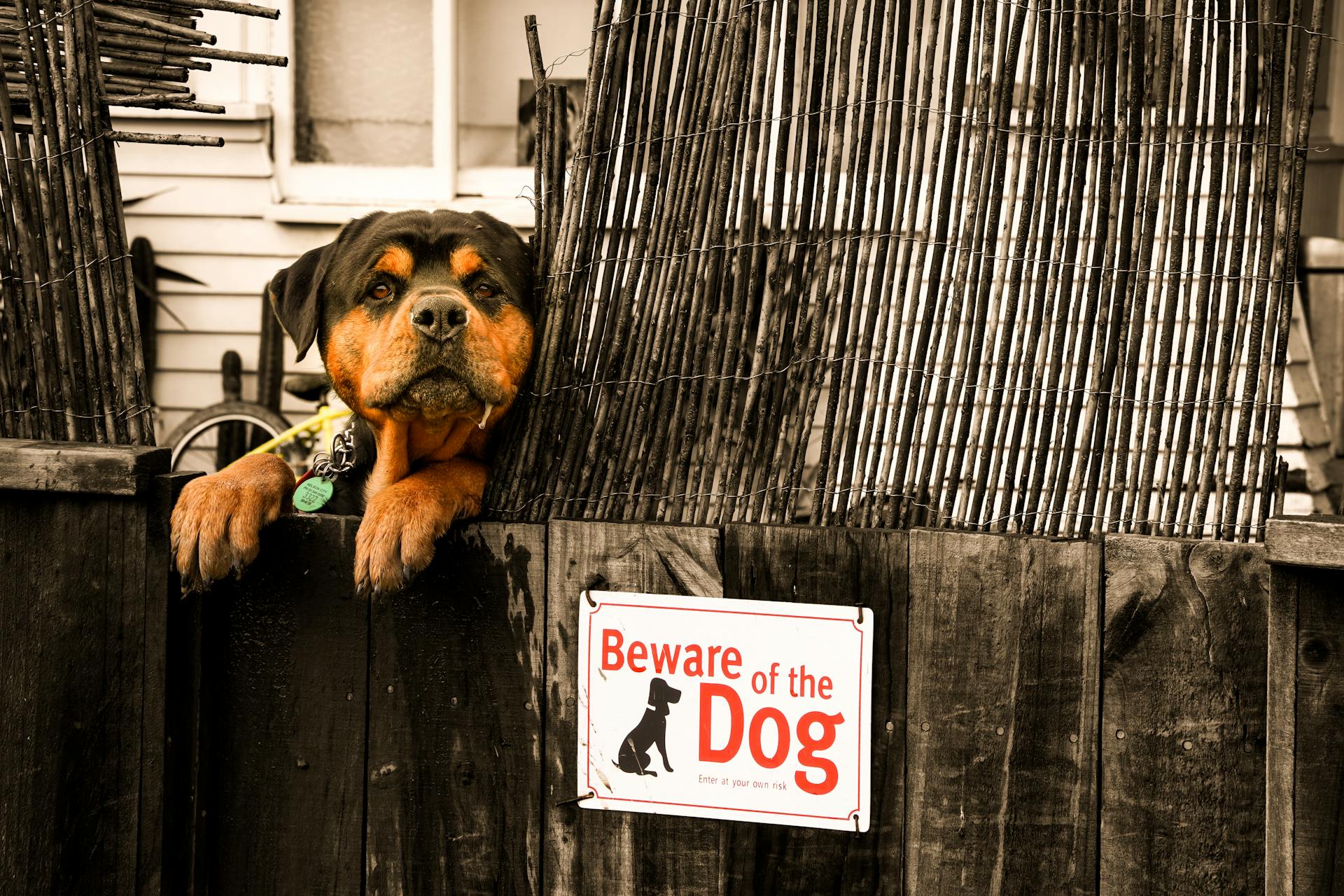
Increased Hunger and Thirst can be a common issue after boarding. This is because new environments can increase your dog's stress levels, reducing how much water and food they consume at the time.
They may overeat and drink excessively when they return home, which can lead to an upset tummy and diarrhea. Try waiting a while until they've calmed down from the excitement of seeing their family before offering a full meal.
If your pup seems thirsty, offering a few ice cubes rather than a full bowl of water can be a good solution. This allows them to rehydrate without overwhelming their system.
Frequently Asked Questions
How long does it take for a dog to adjust after boarding?
Typically, it takes a few days for a dog to adjust after boarding, allowing them to settle back into their routine and normal behaviors
Why is my dog acting different after boarding?
Your dog may be acting differently after boarding due to stress and anxiety caused by separation and unfamiliar surroundings. This adjustment phase can take several days, so be patient and consider reading more about how to ease your dog's transition back home
Sources
- https://peteducate.com/my-dog-is-not-eating-after-boarding/
- https://www.eoah.com/site/blog/2021/06/16/how-does-boarding-affect-dog
- https://www.kaninesocial.com/post/heres-what-you-can-expect-after-boarding-your-dog
- https://www.akc.org/expert-advice/health/why-wont-my-dog-eat/
- https://forevervets.com/blog/common-issues-after-boarding
Featured Images: pexels.com
